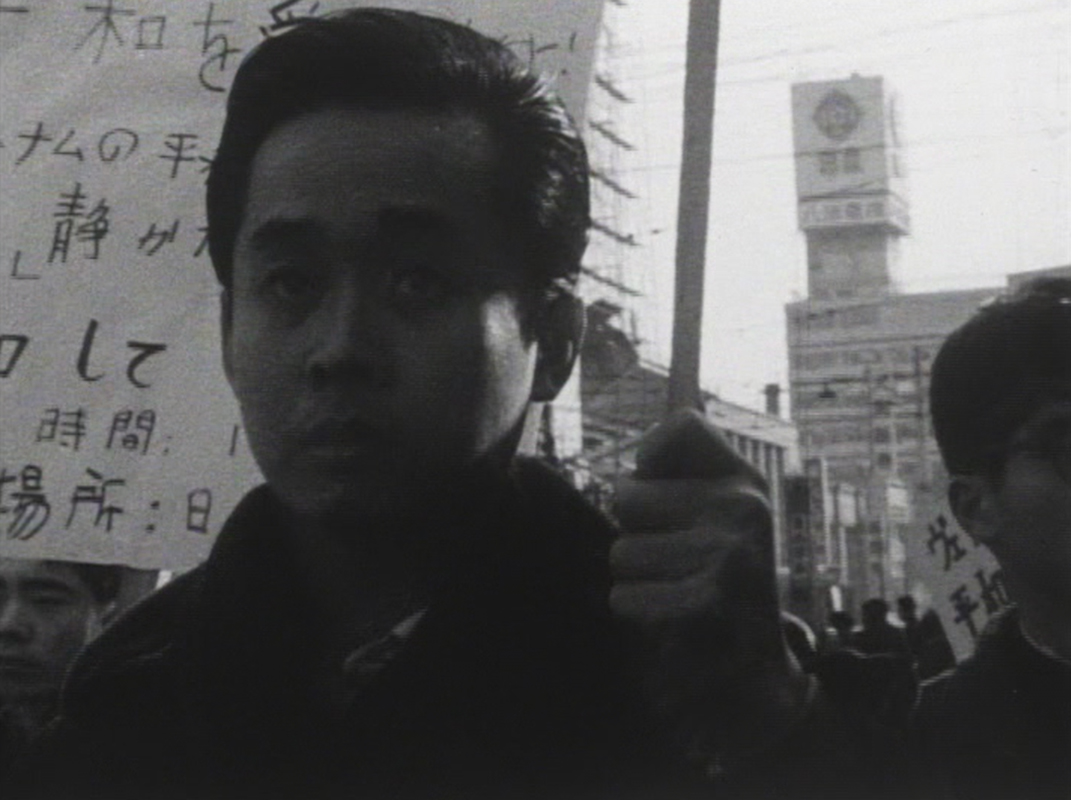Ryugakusei Chua Sui Rin (Exchange Student Chua Swee-Lin)

This film is considered as the precursor to independent documentary in Japan and the first important film about the student movement. Chua Swee-Lin was a Malaysian exchange student who was being threatened with deportation over his protest against the separation and independence of Singapore. Tsuchimoto wished to make a plea for Chua Swee-Lin’s case and thereby avoid his deportation and imprisonment. Chua Swee-Lin starts as a portrait of this young student, but soon becomes a more general and complex documentary about the political situation in Japan. As the film gathers support for Chua Swee-Lin and gives visibility to his cause, we see how his struggle joins that of other social movements.
“With most documentary films after this, like those before it, there first was a movement and then filming began in order to support and document that movement. With Chua Swee-Lin, it was rather the film that organised the movement. There is no doubt that Chua Swee-Lin is a happy exception. [...] It was like an expression of freedom, a freedom that was fresh and new. More than denying any cinematic form, it took what was cinematically impossible and gave birth to a new type of cinematic expression. [...] Chua Swee-Lin was an experiment, thankfully a successful one, an attempt at experiencing and showing the larger situation through the limited viewpoint of an individual. I think the experience of that film was carried on into the next generation’s filmmaking as well. That is what gave rise to Tsuchimoto’s Minamata - The Victims and Their World and The Shiranui Sea, as well as Ogawa’s Sanrizuka - Heta Village.” — Shinomiya Tetsuo
Japanese spoken with English soft-titles